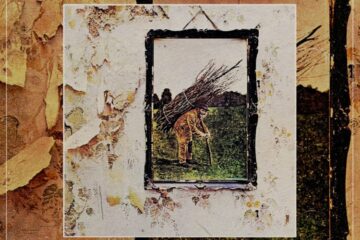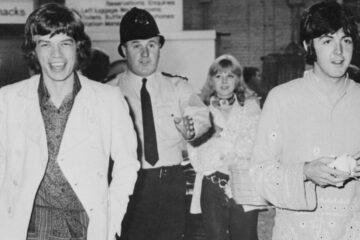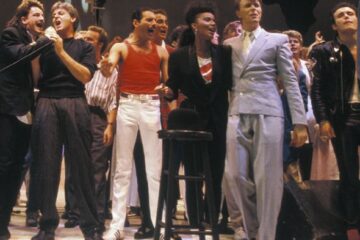Despite both being cultural zeitgeists in their own right, The Beatles and William Shakespeare aren’t two flames often linked in conversation. The band’s dual force of Paul McCartney and John Lennon were privy to dabbling in the odd Shakespearean work here and here, but what most people probably don’t realise is that this also factored into their musical writing in more ways than one.
Despite being a part of the lesser-known production of A Midsummer Night’s Dream in 1964, Lennon and McCartney were also genuine avid readers of Shakespeare, so much so that some of his stories became heavily planted in McCartney’s subconscious, threading its way into some of The Beatles’ lyricism. In The Lyrics: 1956 to the Present, McCartney even suggests that ‘Let It Be’ might have been inspired by lines from Hamlet due to them being so inherently etched into his memory.
However, despite McCartney frequently discussing different inspirational sources caused by his subconscious bias, Shakespeare was definitely referred to or quoted in a number of The Beatles’ hits. In the case of ‘I Am The Walrus’, Lennon once admitted that the song didn’t take any longer to produce than his solo song ‘Whatever Gets You Thru the Night’ did. Perhaps the rapidity in which he raced through his songs made other references overlooked, however, despite being there in plain sight.
During a 1974 interview, Lennon discussed ‘I Am The Walrus’, along with its references to Shakespeare’s King Lear, which included lines that were placed, barely audibly, towards the end of the song. “When I was mixing the record,” he said, “I just heard a radio in the room that was tuned to some BBC channel all the time, and we did about, I don’t know, half a dozen mixes, and I just used whatever was coming through at the time”.
Despite many fans picking up on the familiar inclusion, Lennon didn’t realise until much later.
“I never knew it was King Lear till years later somebody told me, because I could hardly make out what he was saying,” he said. “But I just sort of … it was interesting to mix the whole thing with a live radio coming through it”.
Interestingly, the amalgamation works incredibly well. Technological advancements have made it possible to decipher the exact lines that were played over the recording, which gave the whole track a certain heightened sense of poeticism. Lennon was unaware that he was listening to Shakespeare, but the voice that echoed in the background of his hard work were: “And give the letters which thou find’st about /To Edmund Earl of Gloster; seek him out /Upon the British party:– O, untimely death!”.
Why does the inclusion of the King Lear sample resonate so well? Perhaps a fortuitous stroke of luck? Whatever the reason, The Beatles were adept at such occurrences, frequently tapping into the collective spirit of their times, often even without conscious intent.




